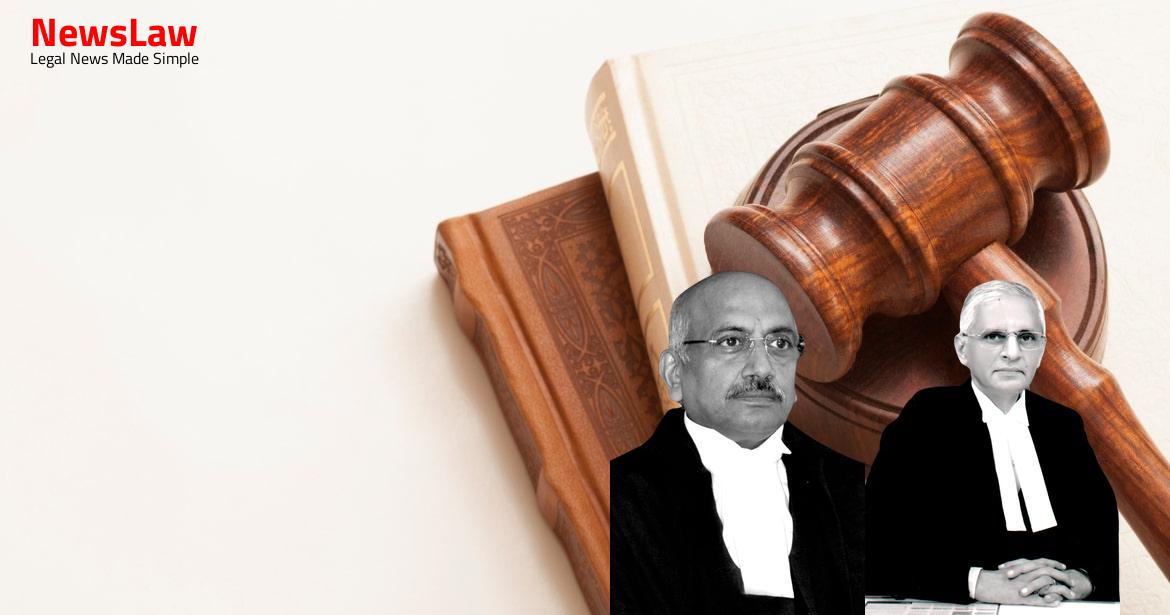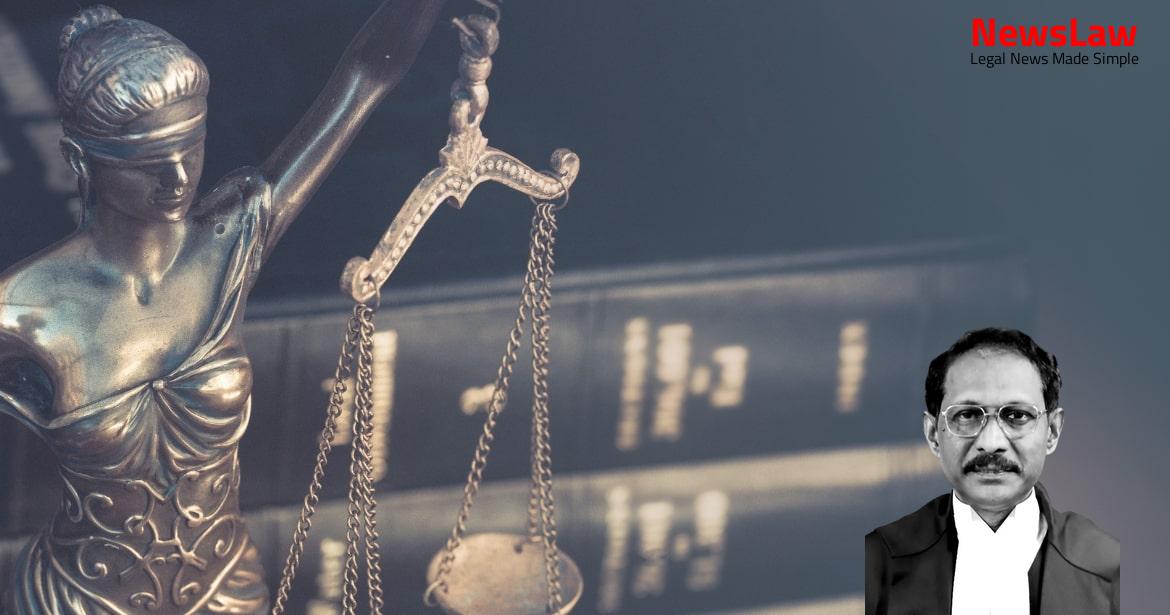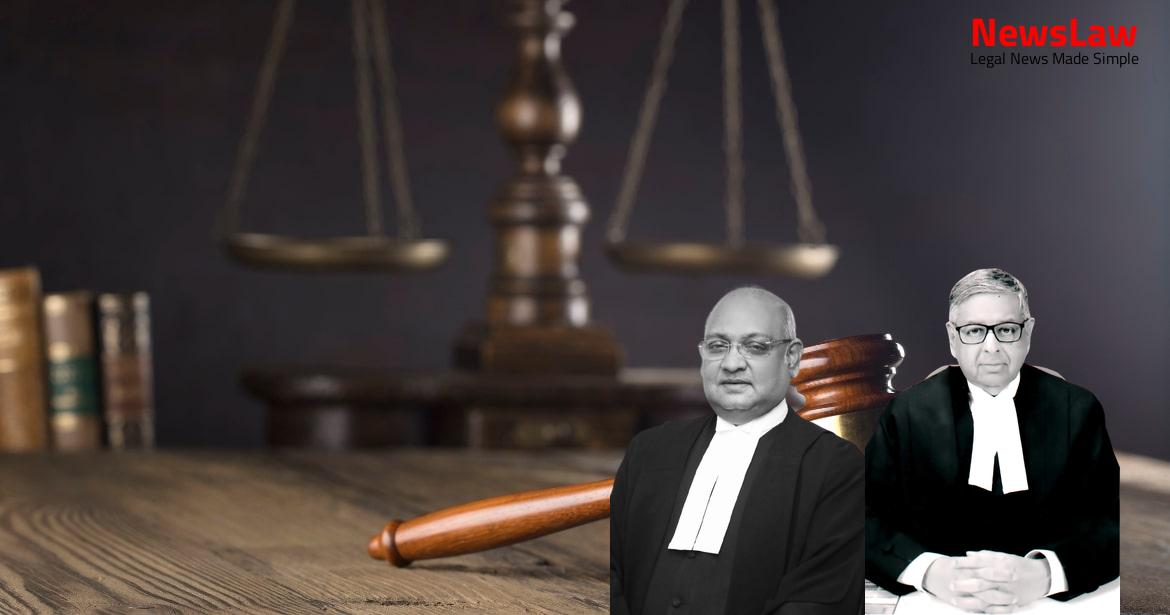The following case summary delves into the legal analysis conducted by the court regarding the vacancy of a tenanted property. The focus is on the interpretation of various laws and provisions surrounding the dissolution of a partnership and the effect of a partner’s demise on the occupancy status of the property. The court’s analysis and decision provide valuable insights into the application of relevant legal principles in determining the vacancy of the premises.
Facts
- An application was filed by the appellant to implead the legal heirs of Subhash Chand, namely, Amit Goyal and Smt. Swati Goyal.
- Subhash Chand was a sub-tenant involved in demolition and changing the structure of the property.
- Pradeep Kumar put a person who was not a family member in possession of the property, potentially rendering it vacant under Section 12(2) of the Act.
- The District Magistrate permitted Subhash Chand to be inducted as a partner on 15.11.1982.
- A written partnership deed was signed between Pradeep Kumar and Subhash Chand on 19.11.1982, with Clause 6 stating that all provisions of the Partnership Act would be applicable.
- The revision petition filed by the landlord challenging the order of the District Magistrate was dismissed on 12.12.1983.
- The appellant argued that the partnership between Pradeep Kumar and Subhash Chand ended automatically upon the death of Pradeep Kumar on 21.05.2004.
- Service was effected on the proposed legal heirs as per the tracking report of the postal authorities.
Also Read: Analysis of Commencement Date in Gratuity Act Amendment Case
Arguments
- Landlords had to give notice of vacancy in writing to the District Magistrate under Section 15 of the Act.
- Subsequent events following the District Magistrate’s order had to be considered.
- The summary dismissal of the special leave petition doesn’t preclude the remedy of review as per Kunhayammed and Others v. State of Kerala and Another.
- In Khoday Distilleries Ltd. v. Sri Mahadeshwara Sahakara Sakkare Karkhane Ltd., a separation of powers argument was raised regarding approval by the District Magistrate, an Executive Authority.
- The Act’s relevant provisions include Section 41 and the U.P. Urban Buildings (Regulation of Letting, Rent and Eviction) Rules, 1972.
- Interpretation of Section 12(2) and 25 of the Act was discussed in Harish Tandon v. Addl. District Magistrate, Allahabad, U.P and Others.
Also Read: Interpretation of Will and Hindu Succession Act: Legal Analysis
Analysis
- The order permitting Subhash Chand as a partner with Pradeep Kumar has ended due to the passage of time and operation of law.
- The High Court failed to consider the fact that the partnership had come to an end due to the subsequent events, including the death of Subhash Chand and Pradeep Kumar.
- The partnership was dissolved by the death of one of the partners, Pradeep Kumar, in accordance with Section 42(c) of the Partnership Act.
- The tenancy also ended as per Section 12(2) of the U.P. Urban Buildings Act, 1972, with the dissolution of the partnership.
- The District Magistrate, under Section 16 of the Act, has the authority to make decisions regarding the use of the building.
- The High Court failed to consider the death of one of the partners as leading to the deemed vacation of the premises.
- The appellant cited the judgment in Pasupuleti Venkateswarlu v. The Motor & General Traders for support.
- The judgment highlighted the principle that the death of a partner can result in the vacation of premises.
- The assertion that Subhash Chand was a divorcee with no children was found to be incorrect as he had a son and a daughter.
- With both partners deceased and no clause allowing continuation of the partnership by legal heirs, the non-residential tenanted premises is deemed vacant in law.
- The tenant is considered to have ceased to occupy the building as per legal interpretation.
Also Read: Legal Analysis of Pujaris’ Rights in Temple Land Ownership
Decision
- The Civil Appeal is allowed, and the tenant is deemed to cease occupying the premises.
- The appellants have the right to seek available remedies and proceed according to the law and the provisions of the Act.
- The tenanted property has become vacant as a result of the decision.
- The High Court’s order in the Review Application dated 23.04.2008 is set aside.
Case Title: DAVESH NAGALYA (D) Vs. PRADEEP KUMAR (D) THR.LRS. (2021 INSC 389)
Case Number: C.A. No.-003477-003477 / 2010



